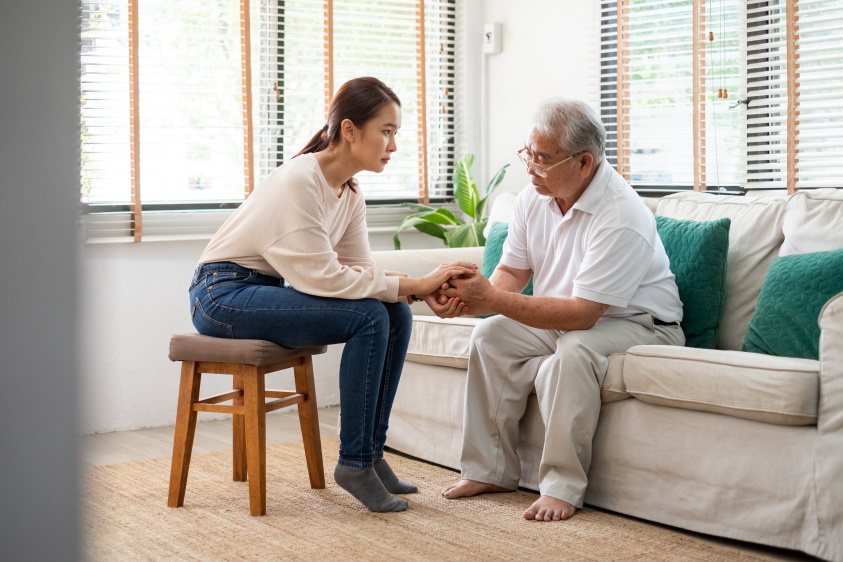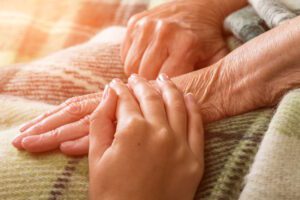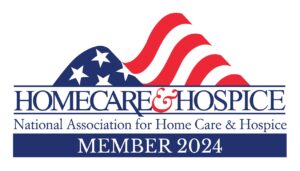Causes of Depression in Elderly Patients and How Home Health Can Support Your Loved One
A serious mood disorder, depression affects how you go about your daily life. Although it is a common problem, clinical depression is not considered a normal part of aging. Older adults can still feel satisfied with their lives.
However, if they had depression in their younger years, they are more likely to suffer as a senior citizen. Thankfully, depression can be treated, and caregivers and home health agencies can help promote elderly patients’ mental health while they complete their duties as your loved one recovers and heals from surgery or an illness.
What Causes Depression in the Elderly?
Senior depression can seemingly occur for no specific discernable reason – but sometimes outside triggers cause it, such as the death of a spouse. Risk factors of developing depression include:
- Comorbid medical condition, such as stroke
- Genetics or family heredity
- Stress
- Sleep issues
- Social isolation or loneliness
- Sitting idle for too long
- Physical limitations
- Alcoholism or addiction
In the brain, depression involves neurotransmitters, the messengers that carry signals between neurons. A low number of neurotransmitters, or the brain’s inability to “read” them can cause clinical depression. And due to neuroplasticity, traumatic experiences, stressful situations, and more can cause slight changes in the brain that cause depressive episodes.
Symptoms of Senior Depression
Depression in the elderly can present differently than it does in younger people, and can even vary between cases. If your loved one is exhibiting these symptoms, it’s smart to bring it up with their in-home medical care team.
Symptoms can include:
- Unrelenting sad mood
- Feeling anxious and/or hopelessness or worthlessness
- Irritability and restlessness
- Unrelenting sad mood
- Loss of interest in activities
- Decreased energy
- Moving or talking more slowly
- Difficulty concentrating or remembering
- Sleep problems
- Eating more or less than usual, affecting body weight
- Thoughts of death or suicide, or suicide attempts
Partnering with Home Health Agencies
In-home medical care is a strong defense against worsening depression, as is familial support. You can help an elderly loved one suffering from depression by:
- Encouraging physical activities. If your loved one is able to take a walk or perform gentle chair exercises, gently suggest they participate in these activities. Go on a walk with them, or follow along with the exercise video instructions, too. Your home health agency may be able to pair your loved one with a physical therapist or occupational therapist to help with this.
- Help them develop a sense of purpose. The elderly have spent their lives feeling valuable and useful to those around them. As they age, they may begin to lose that sense of purpose. Let them participate in daily tasks that support running a household or provide them with supplies for productive hobbies, such as crocheting or fishing fly tying.
- Stay connected and encourage social interaction. Participate in regular phone calls or visits and suggest other family members do, too. Help your loved one maintain existing friendships from their church or other organizations by encouraging visits when possible. Senior centers also provide companionship and fellowship among the elderly.
- Foster healthy habits, including sleep. Balanced meals, daily hygiene, and a tidy environment are huge boons in supporting mental health. A consistent sleep schedule is also helpful.
How Does Home Health Help with Depression?
Hiring private duty care or a home health aide can improve quality of life in the elderly. Even non-medical services from a local agency like Phoenix Home Care & Hospice are beneficial.
By having a regular visitor and staying home in a familiar place, senior citizens maintain their dignity and sense of familiarity and enjoy social interaction.
You do not need a doctor’s order for private duty care, which provides daily living activities in the patient’s home. These services help keep senior citizens out of a full-time nursing facility while fostering independence.
Private duty care services are available in multi-hour shifts, and can include:
- Skilled nursing services
- Respite care (to give relief to a regular family caregiver)
- Basic housekeeping and meal preparation
- Social outings
- Transportation
- Grooming and personal hygiene
- Companionship
- Medication reminders
Talk to Our Home Health Agency About Options for Your Loved One
If you suspect your elderly loved one is suffering from depression, their home health partner can help by providing suggestions or contacting your loved one’s physician on their behalf.
But if your elderly loved one doesn’t qualify for in-home medical care otherwise, private duty care may be the solution.
To learn more about your options, contact Phoenix Home Care & Hospice for more information.






